- Home
- Laura Thalassa
War (The Four Horsemen Book 2) Page 36
War (The Four Horsemen Book 2) Read online
Page 36
After what feels like an eternity, the horseman releases my shoulder. “The wound has closed, though it will take a bit longer to fully repair itself.”
I pull my bloody, torn shirtsleeve aside to glance at the freshly stitched skin. “Thank you.”
Behind me, War shakes his head. “You’re my wife. It is the least of what I would do for you.”
I swallow. The two of us are dipping our toes into a real relationship. Well, for War it’s always been real, but for me, this is all new. And I feel those words. The weight of them.
His other hand moves to my stomach.
“The baby?” There’s such concern in his voice.
The baby. Fuck, that’s right.
I lift my shoulders hopelessly. “I’m sure it’s okay,” I say, more to reassure myself than anything else.
War gives a slight nod. Apparently if I think it’s okay, he thinks it’s okay.
With that, the horseman dismounts. As soon as he does so, I see the arrows in his back.
“War!” This whole time he had his own injuries he was ignoring.
I take in the five projectiles buried in his back. My own wound throbs just staring at them all.
When the horseman sees where I’m looking, he glances over his shoulder at the protruding arrows.
“They’re harmless,” he says, shrugging off my concern.
Are they though?
I remember how he walked into Zara’s gunfire when she faced him off. How he cut up his palms fending my attack off. And supposedly he once took a blade to the gut, just for the hell of it. I guess to him, a few arrows might seem harmless.
Still.
“Can you even feel pain?” I ask as he helps me off Deimos.
“Of course I can.”
He says it like it should be obvious.
“Then how are you not hurting?” I ask.
“The arrows hit my armor.”
Oh. I guess that makes sense. I begin to walk around to inspect them when War catches me.
His eyes move to all the blood that’s dripped down my arm, and a deep frown forms.
Here he is, caring about my pain once again. My throat tightens when I remember that only a short while ago I was attempting to do the exact opposite to him.
My eyes go to the sword at his back. “I’m sorry,” I say.
I don’t know why it’s taken me this long to muster the words, but it’s long overdue.
“For what?”
I touch his chest. “For almost killing you with your own sword.”
He laughs and takes my hand. “You couldn’t have hurt me.”
“I did hurt you though,” I say.
Not all wounds leave marks.
War stares at me for a beat longer, then he brings my knuckles to his lips, his kohl-lined eyes fixed on mine as he kisses my hand. “I appreciate the apology, wife. All is forgiven.”
I release my breath, and it feels like a weight has been lifted.
I give him a smile. “My husband …”
He lifts his eyebrows, his own grin tugging at the corner of his mouth. “To hear that term on your lips … it is the sweetest music, wife.”
We share a moment. An honest to God moment that isn’t overly complicated. And I let myself enjoy it in all its mushy gloriousness without overthinking it.
A dull sound off in the distance breaks the spell. War glances back towards the city that seems to rise from the desert itself. In the process, I see the arrows that litter his back, some which drip blood.
I hiss in a breath. “You are hurt,” I say, stepping towards the wounds.
War reaches behind his back, and grasping one, he yanks it out and tosses it aside. After he does this for another, I stop him.
“I can do it.”
The horseman stills, eyeing me. After a moment, he nods and lets me go around to his back.
There are three more arrows still embedded in his armor and skin. I start with the one near his shoulder, grabbing it by the base. “This might hurt.”
I think I hear him grunt out a laugh, but maybe that’s just my imagination.
I wrap my hand around the arrowhead, give it a tug, and … nothing happens.
Now War does laugh. “Very painful, wife, I appreciate the warning—”
This time I throw my weight into the action and, with a wet noise, the arrow comes free.
I drop the bloody thing and place my hand over the wound. “I can’t heal it like you can.”
“That’s alright, wife,” War says, his voice disarmingly gentle.
I pull out the next arrow and then the last one, yanking hard on each one. Once I’m finished, the horseman turns around and gives me an odd look.
“What?” I say, wiping my hands off on my jeans.
“No one has ever taken care of me.” His voice sounds strange.
I meet his eyes. He looks like something out of a fairytale in his red armor, his black hair adorned with gold pieces.
“I care about you, War. I don’t want you to hurt. Ever.”
War stares at me for a long time. “That’s an odd sentiment for me to hear when part of what I am is pain. But I cannot tell you how moved I am by your words, nonetheless.
“You have made me mortal in the worst way, Miriam, and I am forever grateful for it.”
After the incident in Maghaghah, War’s zombies begin to precede us on our travels, and so every city I pass through is scattered with dead bodies from the fighting that must’ve ensued. Things look worse, not better, than they did weeks ago.
But.
But the horseman’s dead are not attacking these towns we move through, they’re defending themselves. So there are survivors. It’s still a lot to take in, and as more people are informed of the horseman’s arrival, the attacks on the army become more frequent and brutal, and there are more casualties lost from it.
I have to ride through the corpses with the horseman, their blood still dripping from their wounds. I think this is the way things are going to be.
But then, something drastic changes.
Chapter 51
I sit with Zara near the center of camp we’ve erected just outside Luxor. The kid in me is desperate to catch sight of ancient Egyptian ruins, but the pragmatist knows that’s never going to happen. Not during a battle campaign. So I settle for enjoying the sight of the palm trees that hug the bank of the Nile.
Next to me, my friend is trying—and failing—to weave a basket.
Aside from the distant sound of children’s laughter and a few murmured conversations, camp is utterly quiet. War and his army rode out long ago, leaving only a few of us behind.
“Fuck this,” Zara finally says, chucking her lumpy basket in front of her. “I can’t do it.”
It rolls away like a tumbleweed.
“I thought it looked okay,” I lie. Because sometimes encouragement is better than the cold hard truth.
Zara snorts. “You’d have to be blind to—”
The sound of hoof beats interrupts us.
I glance towards the edge of camp. I can’t see past the few cream colored tents in the way, but the longer I listen, the louder the hoof beats become.
For once, War and his riders don’t gallop into camp at full speed. Instead, War appears first, Deimos sauntering almost leisurely into the clearing. Several more riders and their war horses follow, each moving sedately. It’s only after the first few of them pass that I see the children.
There are hundreds of them being herded into camp, their faces dirty and tear-streaked. They range in age from young teenagers to infants.
I rise to my feet, staring at them all in shock.
Zara stands up next to me. “What on earth … ?”
War and his riders came back from battle with captured children.
No, not captured.
Spared.
There was a time when it was a miracle to get War to save a single child. Now he has nearly a city’s worth of them.
My horseman whistles to Zar
a. “I have more children for you to tend to.” War doesn’t bother speaking in tongues. He hasn’t for the last two cities we’ve camped nearby. Now his mind and words are as open as they’ve ever been—much to the shock of the remaining humans that live here.
Zara points to herself, her eyes wide. “Me?”
War gives a nod.
I raise my eyebrows at her. “I guess you’re now the unofficial caretaker of kids.”
She gives me a beseeching look before she approaches the line of children. There are so, so many of them.
Zara corrals them, calling over other individuals to help out. Together they move the kids off to the side of the clearing, where dinner is already prepared.
Let’s hope it’s enough food.
War comes over to me on Deimos, his form obscuring the sun behind him.
“You saved them,” I say.
He stares at me for a long moment, then squints into the distance. “It is … not so easy to destroy them, knowing that they could’ve been mine,” he says, his eyes dropping to my stomach.
My child, he means. He sees his own kid in them.
For a moment, I don’t breathe. This might be the first time I’ve seen true empathy from War.
“Is that why you spared them?”
He glances down at me. “I did it for your soft heart,” he says. “But still, they could’ve been mine.”
This becomes a pattern—sparing children—until there are too many children in camp and not enough adults to attend to all of them. We’ve had to recruit the older kids to help with the younger, which isn’t ideal.
That all changes today. Today War doesn’t just bring back children along with his other war prizes. Today, he also returns with adults.
These people are blood-spattered and their eyes are wide from the things they’ve seen, but they come in with the children and receive meals and shelter all the same. They don’t have to kneel in the blood of their former neighbors while they swear allegiance or choose death. They don’t have to witness daily executions or face killing and dying in battle.
The worst they’ll have to deal with is the culture shock that comes with camp life.
War dismounts Deimos and comes up to me, one of his hands moving to my belly.
“For your soft heart.”
“Who are they?” I ask later that night.
“You mean the people I saved?” War says. He pulls his pants on over his legs, his hair still wet from his bath. His shoulders look a kilometer wide.
I can hear a few phobos riders belligerently shouting outside, drunk from tonight’s revelries. I’m sure if I strain my ears enough, I might even pick up the soft sounds of people weeping. This is the most terrible day of their lives, but they have no idea that it’s one of the horsemen’s most compassionate ones.
He runs a hand through his hair, looking impossibly sexy. “They are the innocents. I judged their hearts and found them pure—or at least as pure as a human heart can be.”
I raise my eyebrows. “What made you decide to spare the innocents?” I ask.
The children I understand; he saw his own child in them. What does he see in these people?
“I vowed to you that I would change,” he says. “I’m trying.”
My throat constricts at that. “So this is all for me?” I can’t say whether that makes me feel impossibly cherished or a little sad.
War narrows his eyes, studying my features for several seconds. “That is a rigged question, wife. I say it’s for you, and you fear I am changing my ways without changing my heart. I say it’s because I’ve suddenly grown a conscience, and I risk slighting your own significant involvement in this process.”
Him growing a conscience could never be a slight against me. It’s what I’ve wanted since I first met him.
“Have you?” I ask. “Have you grown a conscience?”
He saunters towards me then, the tattoos on his chest glittering. War kneels down before me and lifts my fitted grey shirt. It’s probably just my imagination, but my stomach looks a little fuller.
Grabbing my hips, the horseman leans in and brushes a kiss along my abdomen.
“My entire world is right here,” he says, looking up at me. “Late at night, I tremble at the thought of something befalling either of you. Do you understand how crazed that makes me feel?” He stands, moving a hand to my stomach. “There is the barest tendril of another life in you, and it is so vulnerable.” His eyes move to mine. “And that is to say nothing of your own vulnerability. I am impervious to death, but anything can take you—and our child along with you.
“It’s hard to be aware of that fact and to not think about all the other fathers whose families I’ve killed. Whose loves I’ve killed. I am filled with growing shame at what I’ve done because losing you is already unfathomable.
“So yes, I believe I’ve grown a conscience.”
The horseman has done so many horrible things. He deserves to lose the only things he’s ever cared about. Maybe then he would actually know the price of his war. But I don’t want to die, I don’t want my baby to die, and most twisted of all, I don’t want War to feel pain the way he’s made others feel it. Even if it would be just.
He’s not the only one who’s been softened by this relationship.
“You really want a child?” It comes out as a whisper. I didn’t even know it was a question on my mind until the words leave my lips.
Being a father seems so completely at odds with everything War is.
“Before I was … a man,” he says, “I would’ve told you no.”
I get a little spooked, just like I always do, at the reminder of what he actually is.
“Back then I was pain and violence and brotherhood and animosity and loss. I feasted on blood and fear. I couldn’t conceive of life when I was so consumed with death.
“But then I was given this form, and suddenly, I existed in an entirely different way. I saw human nature off the battlefield for the first time. More than that, I felt what it was like to live off the battlefield.”
War’s face is laid bare, and for once, he looks very young.
“It greatly unnerved me, wife. There was so much about human nature that I didn’t know until I lived and walked amongst you all, and I felt stirrings of that nature within myself. I thought giving into those feelings was a weakness only mortals succumbed to.
“However, once I met you, and I began wanting things I had never imagined wanting—things I had once rejected. At first I gave into these new feelings I had for you because I believed God had sent you to me. I was supposed to feel companionship and compassion because He decreed it. I was supposed to take you as my wife because He delivered you to me. It wasn’t wrong.”
“Somewhere along the way, my reasons for giving into these human emotions changed. I no longer pursued you because I was supposed to. I craved your company, your smiles, your fierce anger and clever tongue because it brought me the same joy battle did. And the world bloomed into color. For the first time, I began to truly feel this body and every emotion within it.”
I had no idea. No idea that somewhere along all those winding weeks, when everything felt so hopeless to me, War was changing. Even before the vow he made to me, he was changing.
“I realize now,” he says, “this is what living, what being human, truly is.”
It’s late, and somehow I’m hungry and nauseous all at once. Which really isn’t any surprise because this has happened four other times within the last week.
I fucking hate morning sickness. Hate it, hate it, hate it.
I mean, at the very least it could mind its own damn business and just stick to the mornings.
I stumble out of bed. All the lamps are out but one, which is perched on the table. I stumble over to it.
Resting alongside the lamp is a pitcher of water, a glass, and a platter of fruit, cheese, pita bread, and what looks to be hummus.
Caught beneath the platter is a letter that reads, For my ferocious wife
and child. I am hoping that if I feed you while I sleep, you won’t try to stab me again. Consider this a peace offering.
My lips twist into a smile at the note. Only War could make light of the fact that I kinda sorta tried to kill him.
I pick up the note, and much to my mortification, I can feel myself getting emotional.
It’s not even like this is a one-off event. For weeks War has been leaving out trays of food for me at night. He’s never commented on it; they’ve just appeared. I hadn’t noticed any notes before, but now I wonder if there were other nights with other midnight notes that went unnoticed. Notes that War cleaned up with the tray in the morning.
I’ve been so consumed by what was happening around me that I hadn’t noticed the single, terrible truth within me.
I love the horseman.
I love his violent eyes and the way he sees me. I love his strength and his humor and his ridiculous body, and that smile. That smile that I wait for. I love his voice and his mind. I love how he leaves me platters of food with little notes and how he stole my dagger all that time ago because it was mine. I love our arguments and our make-up sex and our midnight sex and our morning and afternoon and evening sex. I love War’s growing humanity and his otherness.
I love him.
Fuck.
I love him.
I run a hand down my face. I want to take it back. I want to undo whatever witchcraft he’s set on me.
I glance over at War’s sleeping form. I can barely make out his face in the darkness, but what I can see makes my stomach feel light.
This is a familiar story to me. Loving what you’re not supposed to. It happened to my parents, and now it’s happening to me. At least my parents had the benefit of being decent people. War’s decency is buried somewhere beneath his bloody agenda and his thirst for slaughter.
But that’s changing—War is changing, and the world is changing with him.
Chapter 52
With every city we pass through, more and more people are spared. First it’s the children, then it’s the innocents, then it becomes the elderly. Eventually, it’s not clear what distinguishes the people War saves from those he doesn’t. There’s so many spared civilians that eventually the horseman stops bringing them back to camp. If they’ve survived his raid, they get to keep not just their lives, but their homes and possessions too.

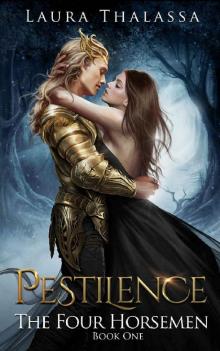 Pestilence (The Four Horsemen Book 1)
Pestilence (The Four Horsemen Book 1)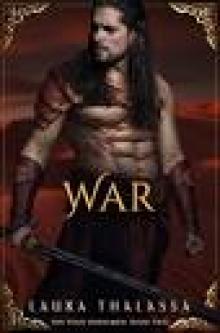 War (The Four Horsemen Book 2)
War (The Four Horsemen Book 2)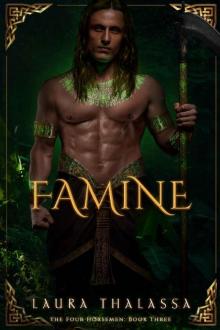 Famine (The Four Horsemen Book 3)
Famine (The Four Horsemen Book 3)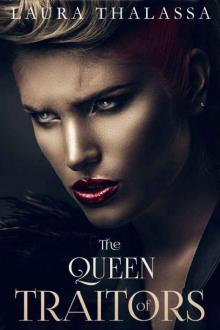 The Queen of Traitors (The Fallen World Book 2)
The Queen of Traitors (The Fallen World Book 2)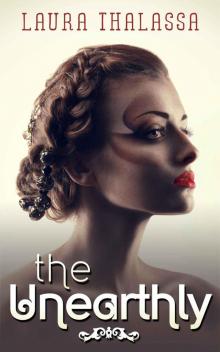 The Unearthly (The Unearthly Series)
The Unearthly (The Unearthly Series)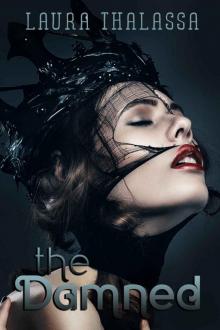 The Damned (The Unearthly Book 5)
The Damned (The Unearthly Book 5)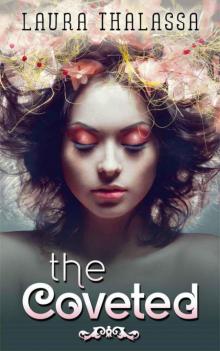 The Coveted (The Unearthly #2)
The Coveted (The Unearthly #2) The Vanishing Girl
The Vanishing Girl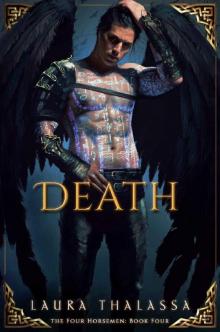 Death (The Four Horsemen Book 4)
Death (The Four Horsemen Book 4)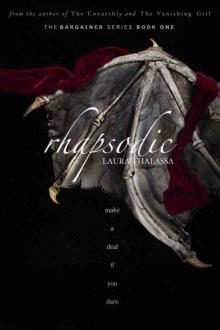 Rhapsodic (The Bargainer Book 1)
Rhapsodic (The Bargainer Book 1)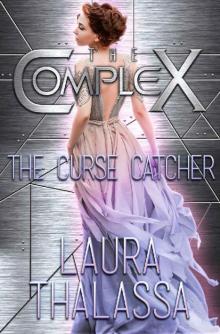 The Curse Catcher (The Complex Book 0)
The Curse Catcher (The Complex Book 0)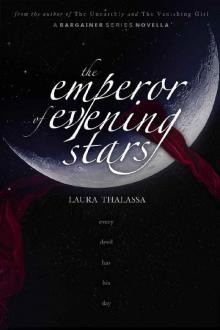 The Emperor of Evening Stars (The Bargainer Book 3)
The Emperor of Evening Stars (The Bargainer Book 3)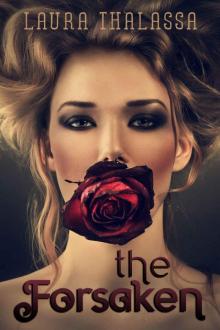 The Forsaken
The Forsaken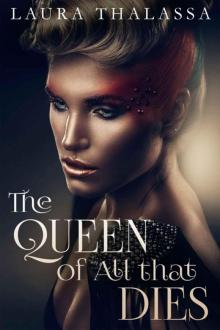 The Queen of All that Dies (The Fallen World Book 1)
The Queen of All that Dies (The Fallen World Book 1)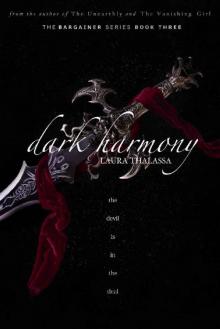 Dark Harmony (The Bargainer Book 3)
Dark Harmony (The Bargainer Book 3) Blood and Sin (The Infernari Book 1)
Blood and Sin (The Infernari Book 1)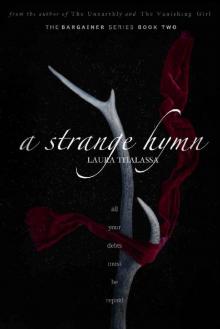 A Strange Hymn (The Bargainer Book 2)
A Strange Hymn (The Bargainer Book 2)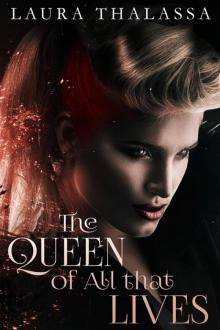 The Queen of All That Lives (The Fallen World Book 3)
The Queen of All That Lives (The Fallen World Book 3) The Cursed (The Unearthly)
The Cursed (The Unearthly)